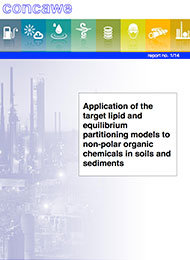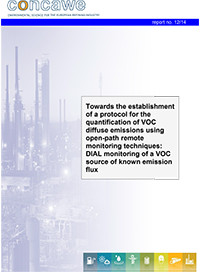

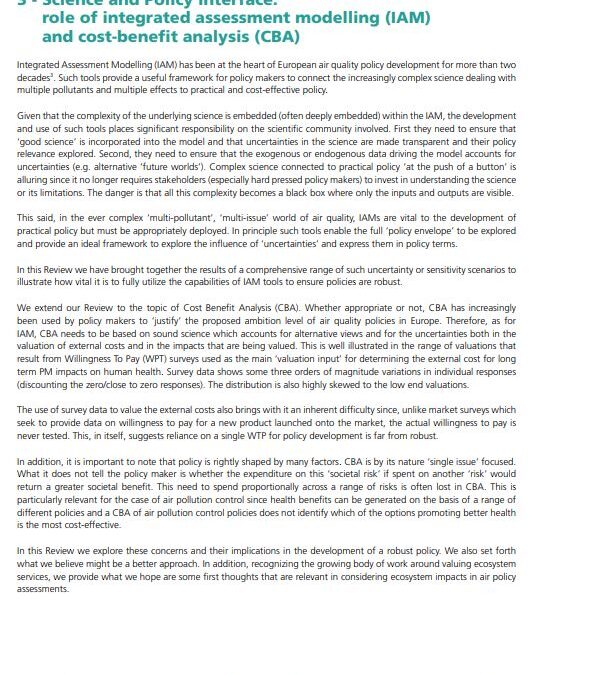
Science and Policy interface: role of integrated assessment modelling (IAM) and cost-benefit analysis (CBA)
Integrated Assessment Modelling (IAM) has been at the heart of European air quality policy development for more than two decades3. Such tools provide a useful framework for policy makers to connect the increasingly complex science dealing with multiple pollutants and...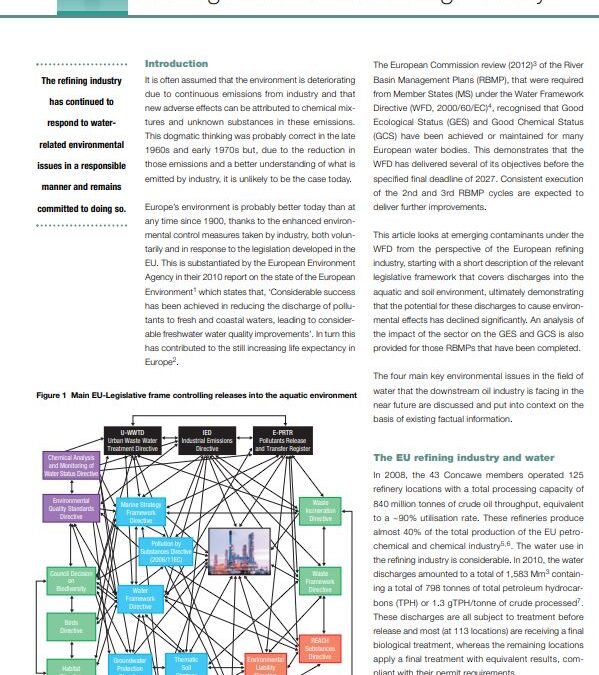
The future of water quality management for the refining industry
IntroductionIt is often assumed that the environment is deteriorating due to continuous emissions from industry and that new adverse effects can be attributed to chemical mixtures and unknown substances in these emissions. This dogmatic thinking was probably correct...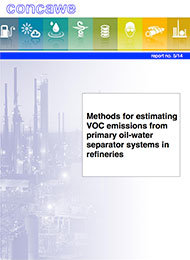
Methods for estimating VOC emissions from primary oil-water separator systems in refineries
Report no. 5/14: This report reviews the different methods available to estimate annual Volatile Organic Compound (VOC) emissions from primary oil-water separator systems in refineries and discusses the results obtained by applying some of these in two field trials...